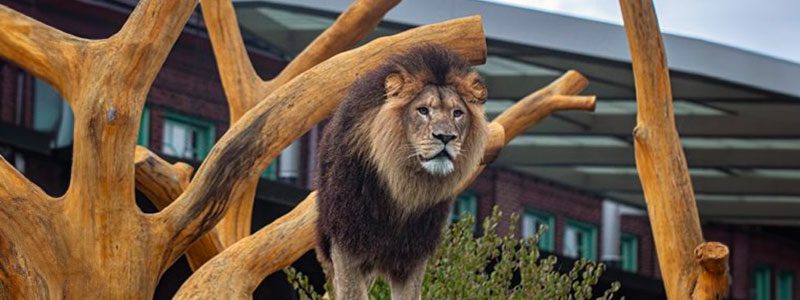
Aardvark
Regenstein African Journey
At this Location…
Regenstein African Journey is open 10 a.m.-4:30 p.m.
Did You Know?
- The name “aardvark” comes from root words meaning “earth pig” in South Africa’s Afrikaans language, but they are not related to pigs. Instead, they make up the single living species within the order Tubulidentata. Their closest relatives are likely elephant shrews.
- These animals may travel more than 6 miles each night foraging for the ants and termites that they eat.
- Aardvarks are a keystone species within their ecosystem, playing a major role in its health. After they abandon their burrows, other animals take them over and use them.
Don’t See the Animals?
Why aren’t animals visible at all times? To promote positive animal welfare, we provide animals with choices. They can choose to spend time in areas that are out of public view.

Take an Animal Home with You
Overview
Scientific Name: Orycteropus afer
Class: Mammals
Diet: Ants and termites
Range: Sub-Saharan Africa
Endangered Status: Least Concern
More Information
As medium-sized mammals that weigh between 100–140 pounds, aardvarks resemble pigs because of their pinkish-gray skin and long snout. They also share feeding adaptations with anteaters, but they are not closely related to either. They have long, blunt claws for digging and a snout covered with hair that prevents dirt from entering their nostrils. Their thick skin protects them from insect bites while sparse hair and large ears keep them cool. Long, sticky tongues allow aardvarks to gather and ingest insects easily, while an excellent sense of smell helps them locate insects even underground.
Aardvarks are mainly nocturnal and solitary. When awake, they spend much of their time searching for prey. Females stay within a home range, while males may also roam depending on the region they are in. After a 6–7-month gestation period, they give birth in burrows, usually to a single infant. Young aardvarks venture out on their own after about six months. Population information is unavailable because their habits make them difficult to study.
